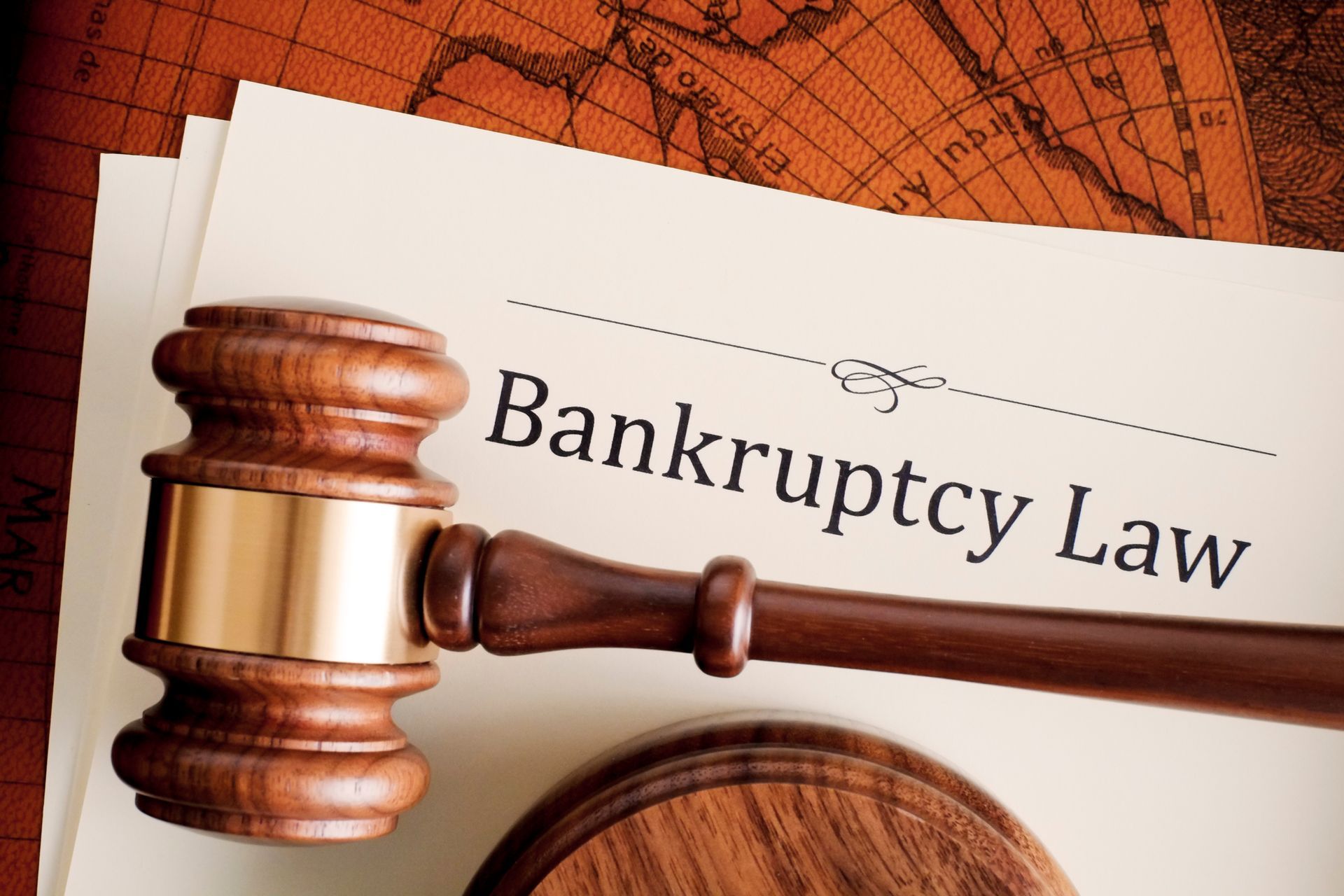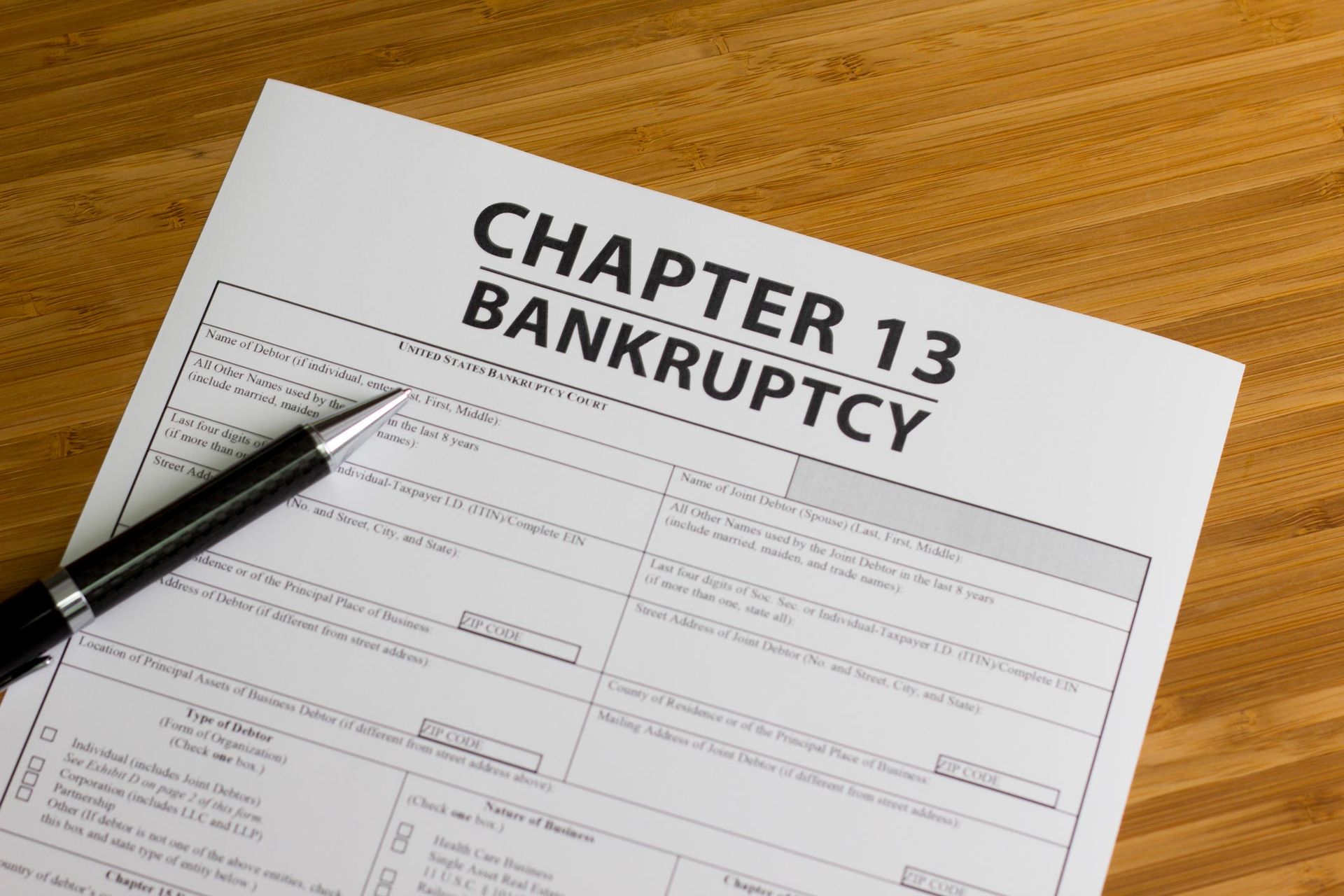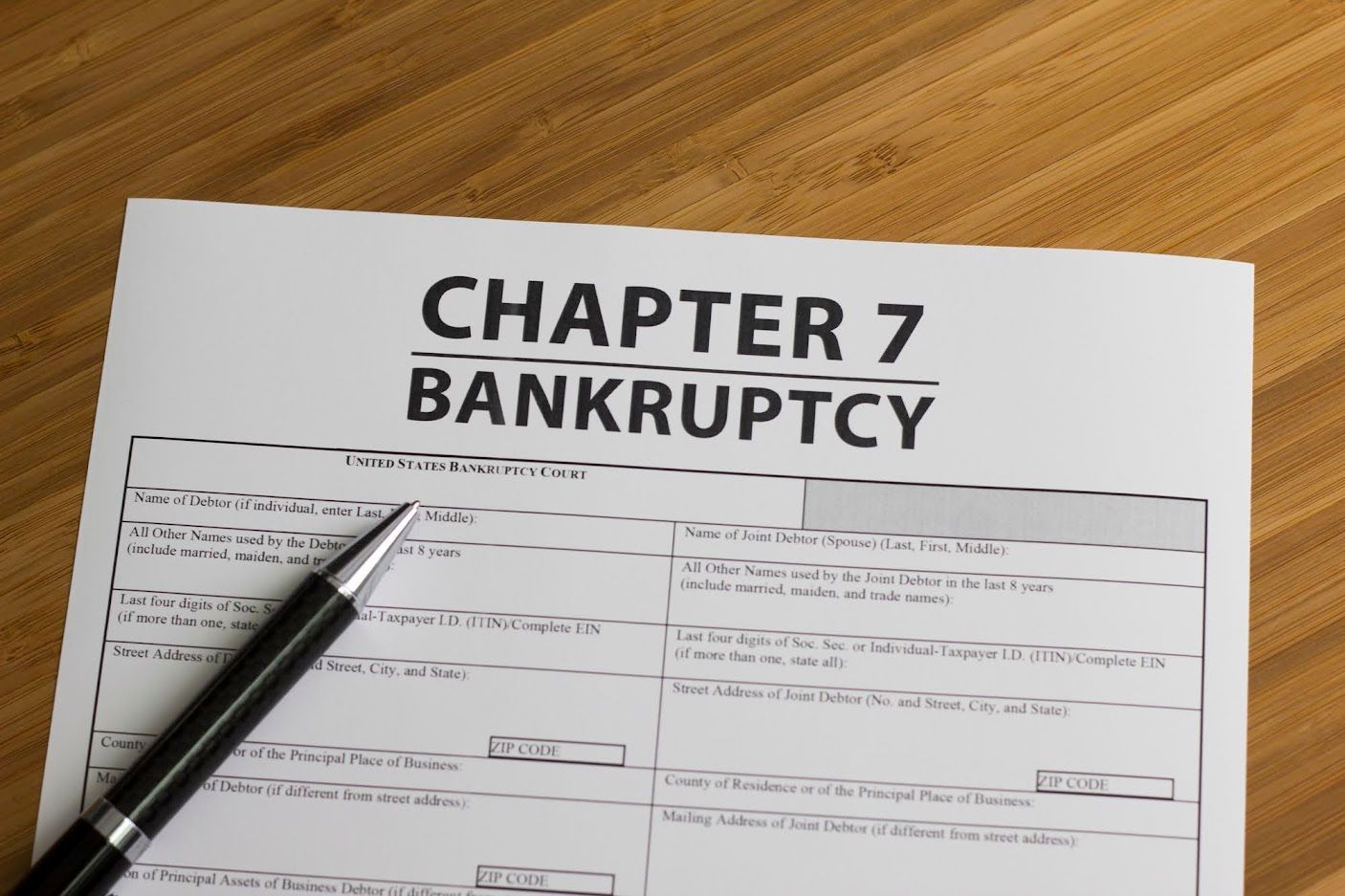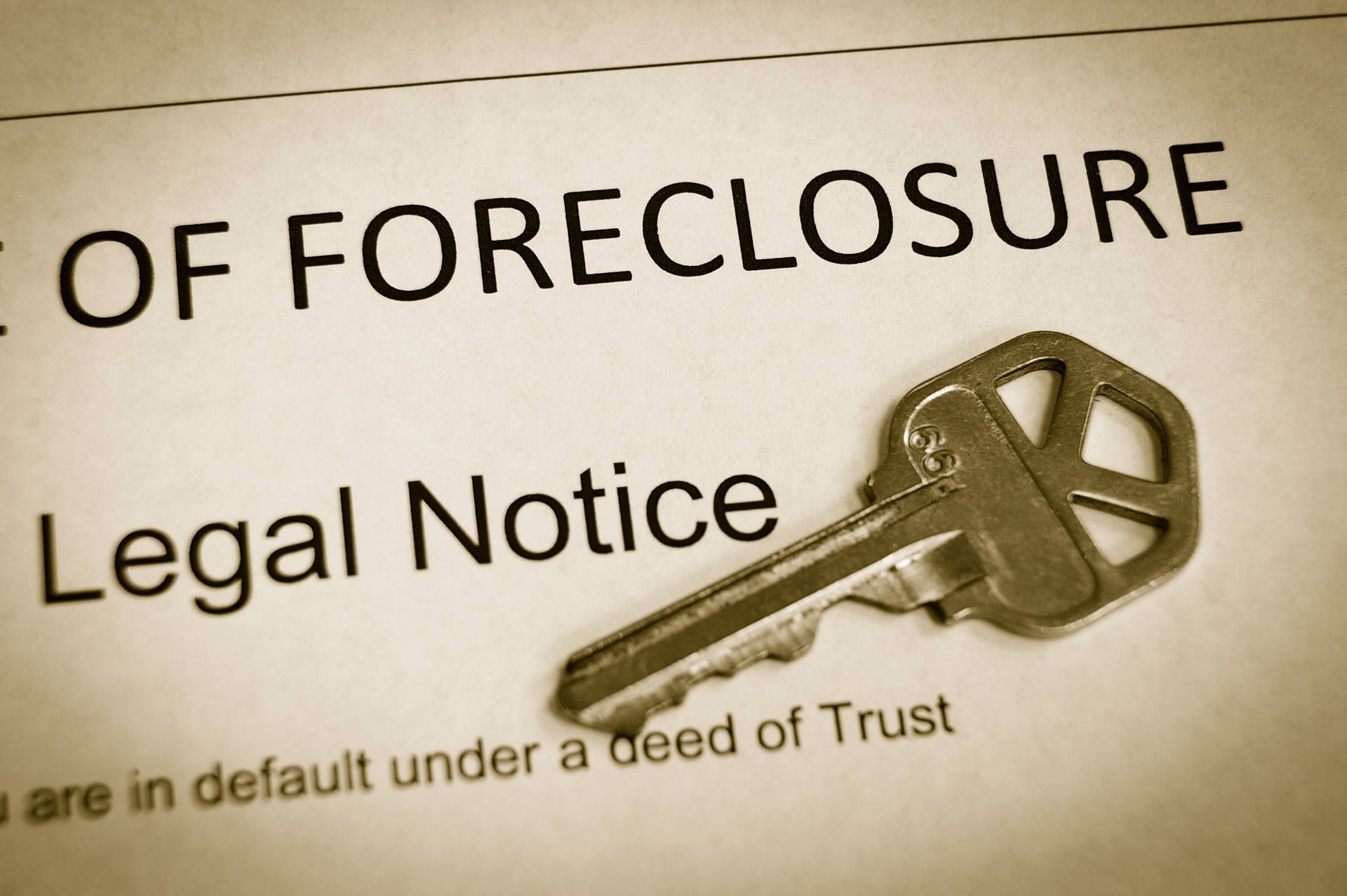
Same Day Telephone, Zoom or In-Person Meetings Available
Palm Beach County: (561) 689-6789
St. Lucie County: (772) 344-9090
Blog Layout
Understanding The Legal Process Of Foreclosure
March 7, 2024
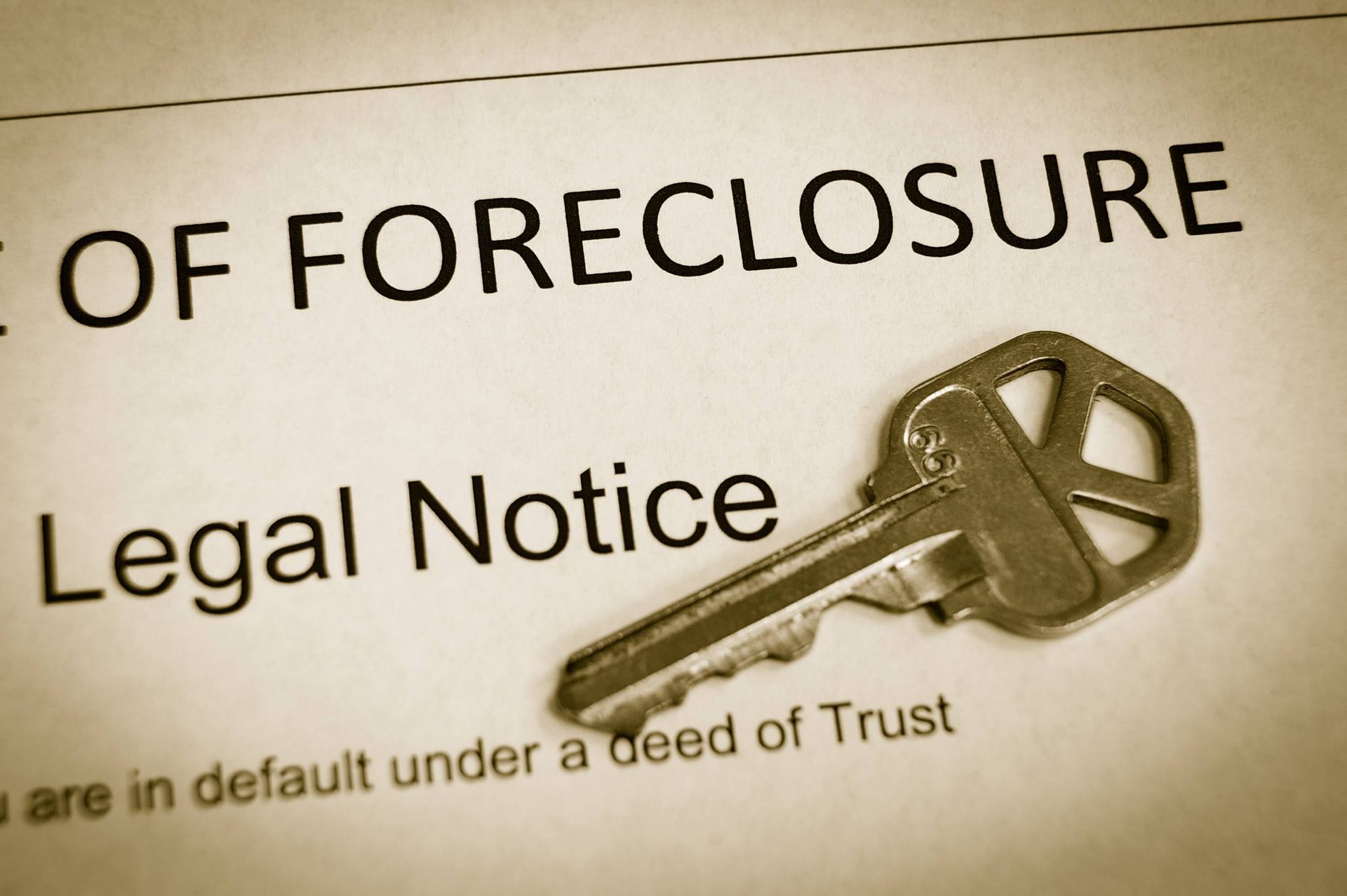
Foreclosure is a legal process that allows a mortgage holder to sell or repossess a property when a homeowner fails to meet their mortgage obligations. It can be a confusing and daunting process for homeowners, but understanding the legal process of foreclosure can help them take the necessary steps to avoid losing their homes. In this blog post, we'll take a closer look at the legal process of foreclosure and offer tips on how to navigate it.
Foreclosure laws vary from state to state, but the legal process typically begins when a homeowner falls behind on their mortgage payments. The mortgage lender will send a notice of default to the homeowner, which gives them a specific timeframe to bring their mortgage payments up to date.
If the homeowner fails to cure the default, the lender will file a foreclosure lawsuit in court. Following the initiation of the foreclosure process, the homeowner will be served a formal notice detailing the impending lawsuit. This notice usually includes a specific time frame within which the homeowner must craft and submit a response to the lawsuit.
If the homeowner fails to respond to the foreclosure lawsuit, the court will issue a default judgment, and the property will be sold at a public auction. If the homeowner contests the foreclosure lawsuit, the case will go to court. At the court hearing, the judge will decide whether to grant the foreclosure to the lender or to the homeowner.
If the judge rules in favor of the lender in the foreclosure case, the property will proceed to a public auction, where it will be sold to the highest bidder. On the other hand, if the judge rules in favor of the homeowner, they will have the opportunity to retain ownership of their home and continue residing there.
In some states, homeowners have a redemption period, a specified timeframe after a foreclosure sale, allowing them the opportunity to reclaim their property. During this period, they can settle the outstanding mortgage balance or repurchase the property at the auction price. This provision offers a valuable second opportunity for homeowners to reclaim ownership of their property before facing the irreversible loss of it. It acts as a safety net, providing a chance for individuals to rectify their situation and retain their homes.
How to Avoid Foreclosure
There are several steps homeowners can take to avoid foreclosure, including:
After the foreclosure, the homeowner will typically have to vacate the property. They may also be responsible for any remaining mortgage debt, which is called a deficiency judgment. The lender, after a foreclosure sale, has the option to pursue a deficiency judgment through the court. This legal recourse allows the lender to seek repayment for the difference between the outstanding loan balance and the sale price of the property. If successful, the lender may enforce the judgment through wage garnishment or other legal actions to recover the debt owed.
Foreclosure can be a difficult and stressful process for homeowners, but understanding the legal process and taking steps to avoid it can help. Communication with the lender, seeking assistance from a housing counselor, and exploring all available options can make a big difference. When the foreclosure process begins, halting it can be difficult, so prompt action is crucial.
Seize control of your financial future - reach out to us now to understand the foreclosure process. Don't delay; start exploring your options today to avoid regrets later on. Contact Ozment Law PA for more information.
Overview of the Legal Process of Foreclosure
Foreclosure laws vary from state to state, but the legal process typically begins when a homeowner falls behind on their mortgage payments. The mortgage lender will send a notice of default to the homeowner, which gives them a specific timeframe to bring their mortgage payments up to date.
If the homeowner fails to cure the default, the lender will file a foreclosure lawsuit in court. Following the initiation of the foreclosure process, the homeowner will be served a formal notice detailing the impending lawsuit. This notice usually includes a specific time frame within which the homeowner must craft and submit a response to the lawsuit.
The Court Process
If the homeowner fails to respond to the foreclosure lawsuit, the court will issue a default judgment, and the property will be sold at a public auction. If the homeowner contests the foreclosure lawsuit, the case will go to court. At the court hearing, the judge will decide whether to grant the foreclosure to the lender or to the homeowner.
If the judge rules in favor of the lender in the foreclosure case, the property will proceed to a public auction, where it will be sold to the highest bidder. On the other hand, if the judge rules in favor of the homeowner, they will have the opportunity to retain ownership of their home and continue residing there.
Redemption Period
In some states, homeowners have a redemption period, a specified timeframe after a foreclosure sale, allowing them the opportunity to reclaim their property. During this period, they can settle the outstanding mortgage balance or repurchase the property at the auction price. This provision offers a valuable second opportunity for homeowners to reclaim ownership of their property before facing the irreversible loss of it. It acts as a safety net, providing a chance for individuals to rectify their situation and retain their homes.
How to Avoid Foreclosure
There are several steps homeowners can take to avoid foreclosure, including:
- Communicating with their lender and exploring options for loan modification or forbearance
- Seeking assistance from a HUD-approved housing counselor
- Selling the property before the foreclosure process begins
- Filing for bankruptcy, which can temporarily stop the foreclosure process
What Happens After Foreclosure?
After the foreclosure, the homeowner will typically have to vacate the property. They may also be responsible for any remaining mortgage debt, which is called a deficiency judgment. The lender, after a foreclosure sale, has the option to pursue a deficiency judgment through the court. This legal recourse allows the lender to seek repayment for the difference between the outstanding loan balance and the sale price of the property. If successful, the lender may enforce the judgment through wage garnishment or other legal actions to recover the debt owed.
Foreclosure can be a difficult and stressful process for homeowners, but understanding the legal process and taking steps to avoid it can help. Communication with the lender, seeking assistance from a housing counselor, and exploring all available options can make a big difference. When the foreclosure process begins, halting it can be difficult, so prompt action is crucial.
Seize control of your financial future - reach out to us now to understand the foreclosure process. Don't delay; start exploring your options today to avoid regrets later on. Contact Ozment Law PA for more information.
Quick Links
Contact Information
Address:
Palm Beach County: 2001 Palm Beach Lakes Blvd Suite 500 West Palm Beach, FL 33409

Content, including images, displayed on this website is protected by copyright laws. Downloading, republication, retransmission or reproduction of content on this website is strictly prohibited. Terms of Use
| Privacy Policy

